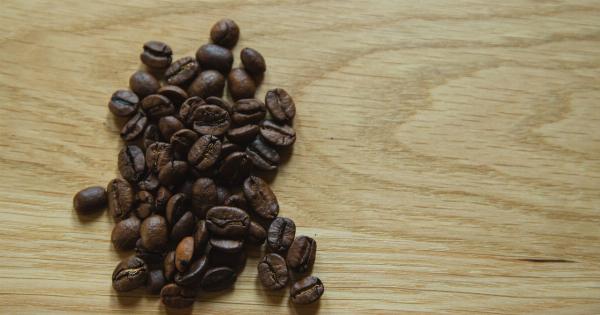Cellulite is a common cosmetic concern that affects many individuals, especially women. It refers to the dimpled appearance of the skin that often occurs on the buttocks, thighs, and hips.
This condition can cause self-consciousness and may affect body image. While cellulite is not a serious medical condition, understanding its causes and potential treatment options can be helpful. In this article, we will explore 30 things to consider regarding cellulite.
1. What is cellulite?
Cellulite is the term used to describe the lumpy, dimpled flesh that often appears on the buttocks, thighs, and hips. It is caused by fat deposits pushing through the connective tissues beneath the skin.
2. Who does cellulite affect?
Cellulite affects both men and women, but it is more commonly seen in women due to hormonal and structural differences in their bodies.
3. What causes cellulite?
There isn’t a single cause of cellulite, but several factors contribute to its development. These include genetics, hormonal changes, poor diet, sedentary lifestyle, and connective tissue abnormalities.
4. Can weight loss reduce cellulite?
Weight loss can help reduce the appearance of cellulite, but it may not entirely eliminate it. Maintaining a healthy weight through a balanced diet and regular exercise can be beneficial.
5. Are there any effective treatments for cellulite?
Several treatments and procedures claim to reduce the appearance of cellulite, but their efficacy varies. These include topical creams, massage techniques, laser treatments, and surgical procedures.
6. Can exercise help with cellulite?
Regular exercise can help improve overall body tone and circulation, which may have a positive effect on cellulite. Specific exercises that target the affected areas can help strengthen muscles and reduce the appearance of cellulite.
7. Is cellulite more common with age?
Cellulite becomes more common with age due to hormonal changes, reduced collagen production, and skin thinning. It often becomes more noticeable as skin elasticity decreases.
8. Does a healthy diet affect cellulite?
A healthy diet that is rich in fruits, vegetables, lean proteins, and whole grains can help maintain healthy skin and reduce the appearance of cellulite. Avoiding processed foods, excessive salt, and sugar can also be beneficial.
9. Can cellulite be prevented?
While cellulite cannot be entirely prevented, adopting a healthy lifestyle that includes regular exercise, a balanced diet, and abstaining from smoking can minimize its appearance.
10. Are there medical conditions associated with cellulite?
Cellulite is not associated with any specific medical condition, but it can be more prevalent in individuals with circulatory or lymphatic disorders.
11. What role do hormones play in cellulite formation?
Hormonal changes, such as those associated with puberty, pregnancy, and menopause, can contribute to the development of cellulite. Hormones influence fat storage and the structure of connective tissue.
12. Can cellulite be a sign of poor circulation?
Cellulite can be associated with poor circulation, as it may impede blood flow and lymphatic drainage. However, poor circulation alone is not the sole cause of cellulite.
13. Does wearing tight clothing worsen cellulite?
Wearing tight clothing, especially those that restrict blood flow and lymphatic drainage, may temporarily worsen the appearance of cellulite. Opting for loose-fitting clothing can be more comfortable and less restrictive.
14. Is cellulite related to body weight?
Cellulite is not exclusively related to body weight, as individuals with a normal body mass index (BMI) can also develop cellulite. However, excess body fat can make cellulite more noticeable.
15. Can cellulite be hereditary?
Genetics can play a role in cellulite development. If your parents or close relatives have cellulite, you may have an increased likelihood of developing it as well.
16. Are there any natural remedies for cellulite?
While there is no scientific evidence supporting the effectiveness of natural remedies for cellulite, some individuals claim that applying coffee grounds, dry brushing, or using essential oils can improve its appearance.
17. Can stress worsen cellulite?
Chronic stress can indirectly worsen cellulite by disrupting hormone levels and contributing to an unhealthy lifestyle.
Managing stress through relaxation techniques, exercise, and seeking support can have overall health benefits, including potential reduction in cellulite appearance.
18. Does smoking contribute to cellulite?
Smoking can weaken the skin’s structure, reduce blood flow, and damage collagen and elastin fibers, potentially worsening the appearance of cellulite. Quitting smoking can have numerous health benefits, including improved skin health.
19. Can cellulite be reduced with massage?
Massage techniques such as lymphatic drainage massage and deep tissue massage may temporarily reduce the appearance of cellulite by improving circulation and stimulating the lymphatic system.
20. Can cellulite creams have any effect?
There are numerous cellulite creams available in the market, but their effectiveness is not scientifically proven. Some creams may provide temporary tightening or moisturizing effects, but the results are usually limited.
21. Can caffeine help reduce cellulite?
Caffeine-containing creams or treatments claim to help reduce cellulite by stimulating fat metabolism and improving circulation. While caffeine may have a temporary tightening effect, its impact on cellulite reduction is limited.
22. Are there any medical procedures for cellulite reduction?
Medical procedures such as laser treatments, radiofrequency therapy, and subcision are available for cellulite reduction. These procedures aim to improve skin elasticity, stimulate collagen production, or release fibrous bands beneath the skin.
23. Can cellulite return after treatment?
Cellulite can return after treatment, as the underlying causes may not be entirely resolved. Maintenance treatments and a healthy lifestyle can help minimize the recurrence of cellulite.
24. Can cellulite worsen during pregnancy?
During pregnancy, hormonal changes, weight gain, and decreased circulation can contribute to the worsening of cellulite. However, the appearance of cellulite may improve after pregnancy with proper care and lifestyle choices.
25. Can cellulite improve with weight gain?
Weight gain may cause the appearance of cellulite to worsen, as increased fat deposits can push through the connective tissues. Losing excess weight can help reduce the visibility of cellulite.
26. Can cellulite be a symptom of a more serious condition?
Cellulite itself is not a symptom of a serious medical condition. However, if you notice sudden changes in the appearance of cellulite or experience accompanying symptoms, it is advisable to consult a healthcare professional.
27. Can cellulite be permanently eliminated?
Cellulite cannot be permanently eliminated, as it is influenced by multiple factors and is a natural occurrence. However, maintaining a healthy lifestyle and adopting various treatment approaches can help minimize its appearance.
28. Can cellulite be more severe in certain individuals?
Cellulite severity can vary among individuals due to genetic factors, lifestyle choices, and hormonal influences. Some individuals may have a more severe form of cellulite, while others may have milder signs.
29. Can cellulite affect self-esteem?
Cellulite can affect self-esteem, body image, and confidence, especially in individuals who feel self-conscious about their physical appearance. It is essential to focus on overall health and well-being rather than being fixated on cellulite.
30. Are there support groups for individuals with cellulite concerns?
Although there may not be specific support groups dedicated to cellulite, numerous online communities and forums provide a platform for individuals to discuss their concerns, share experiences, and seek advice.





























